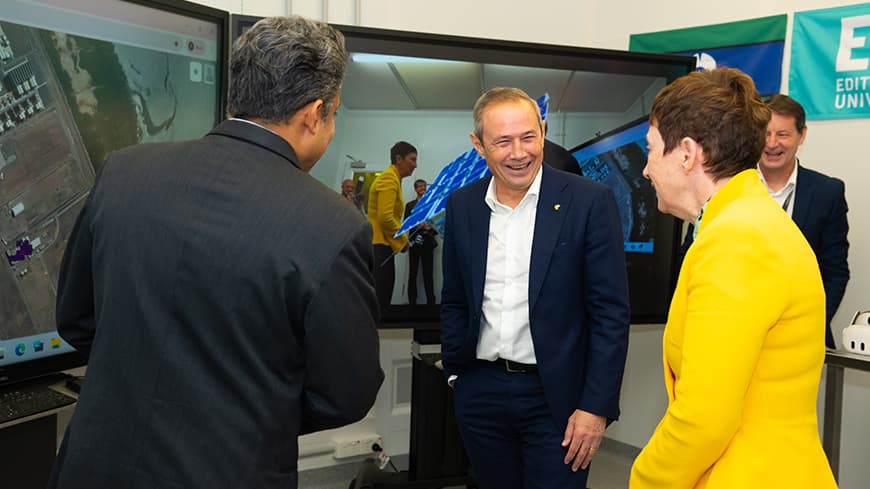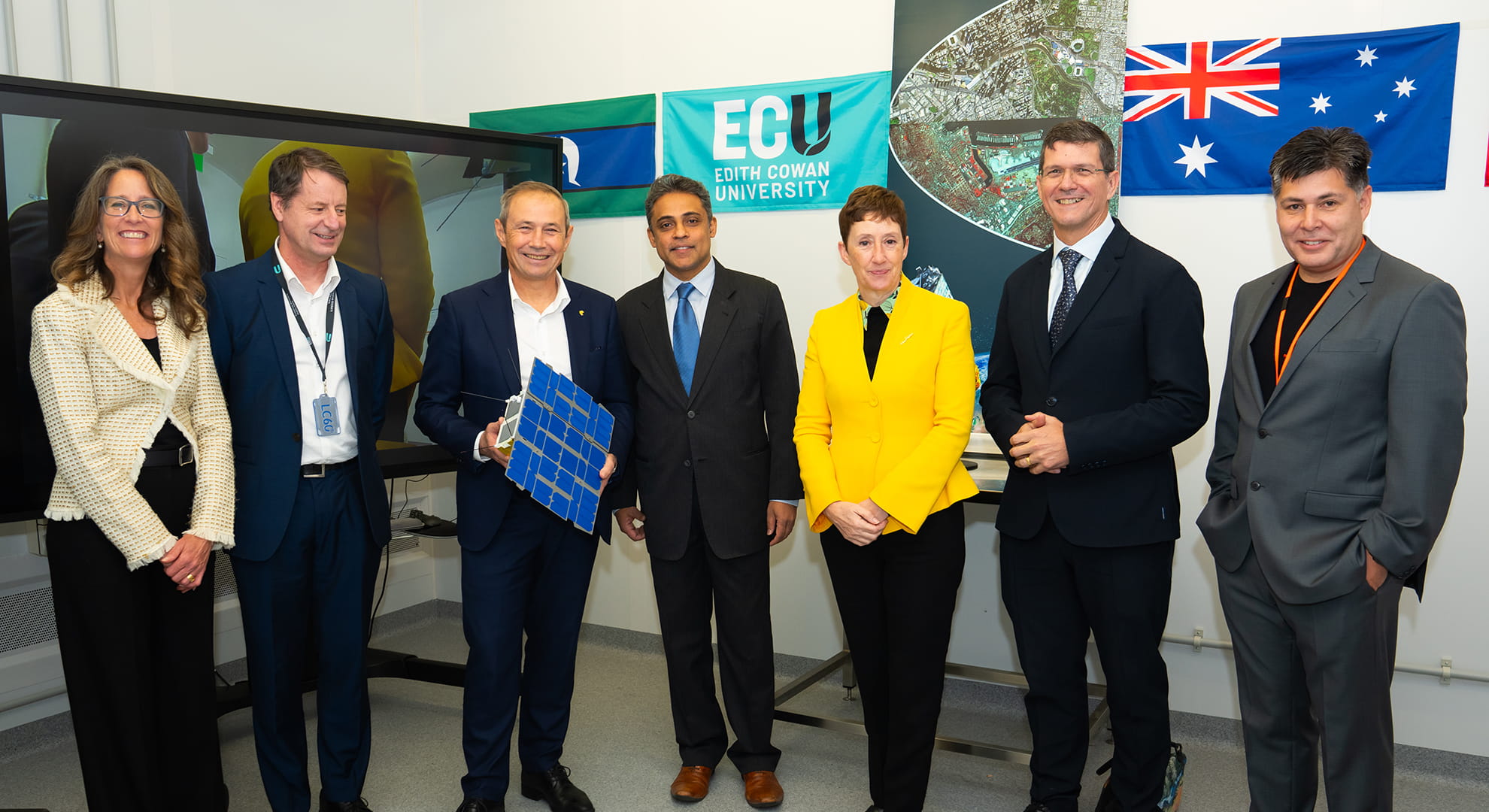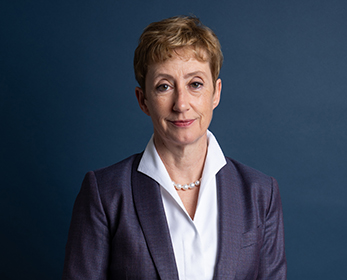The visit highlighted ECU's collaboration with space-based earth observation company LC60 AI, which received $3.5 million in State Government funding to boost Western Australia's Earth Observation (EO) capabilities. This initiative focuses on collecting, processing, analysing, and applying high-resolution satellite data to support a range of environmental and economic outcomes.
During his visit, Premier Cook toured the clean room in Building 23, set to be the assembly site for a Low Earth Orbit satellites scheduled for launch by SpaceX in 2026. The satellite will collect high-resolution data on carbon emissions across Australia, providing valuable insights for sectors such as agriculture, environmental management, and emergency response.
Premier Cook also experienced an immersive virtual reality (VR) demonstration, allowing him to explore and interact with the satellite designs in a 3D environment. Through the VR experience, the Premier was able to virtually handle and deconstruct the proposed satellites, gaining an inside look at the advanced components and systems behind the mission. The experience underscored both the technical sophistication of the project and the role of cutting-edge tools in making science more accessible.
"Partnering with ECU allows us to translate Western Australia's investment in space innovation directly into local talent, jobs and environmental impact. By assembling our carbon-monitoring satellites right here at ECU, we're giving students hands-on experience with cutting-edge space hardware while building sovereign capability that will help industry and government track emissions with unprecedented accuracy," LC60AU COO Rueben Rajasingam said.
"Together, we're proving that WA can be a leader in turning high-resolution Earth observation into smarter, greener decisions for our communities."
Executive Dean of the School of Engineering, Professor Paulo de Souza, said the collaboration presents invaluable opportunities for ECU students.
"This partnership with LC60 demonstrates how ECU works with innovative SMEs to build space capability, create unique learning experiences for our students, and leverage our international networks to help grow a new economic sector in Western Australia," Professor de Souza said.
 The Premier with Professor Pollock inside ECU's clean room facility.
The Premier with Professor Pollock inside ECU's clean room facility.
ECU Vice-Chancellor, Professor Clare Pollock, said partnerships like this one are essential to driving innovation and developing a future-ready workforce.
"Collaborating with industry not only accelerates technological progress but also ensures our students are equipped with real-world experience that positions them at the forefront of emerging sectors," she said. "We're proud to be working alongside LC60 and the WA Government to help shape the future of Australia's space and environmental monitoring capabilities."

 Premier Roger Cook toured the School of Engineering with Vice-Chancellor Professor Clare Pollock.
Premier Roger Cook toured the School of Engineering with Vice-Chancellor Professor Clare Pollock.




